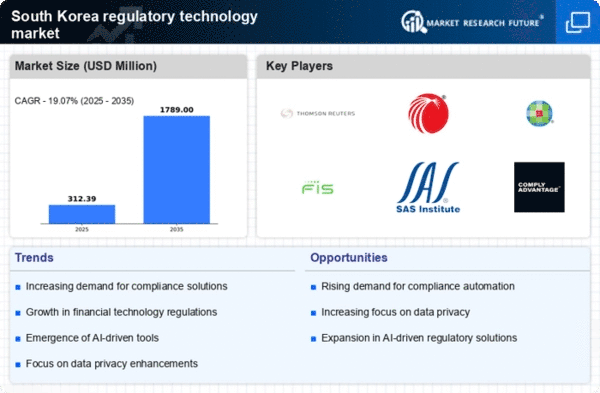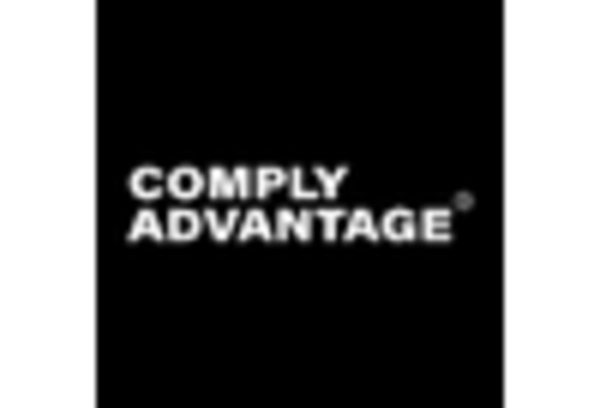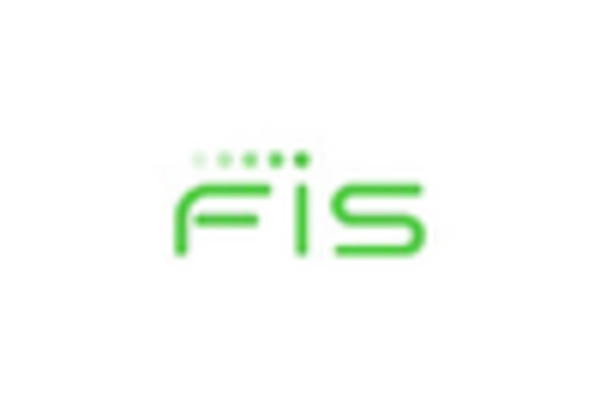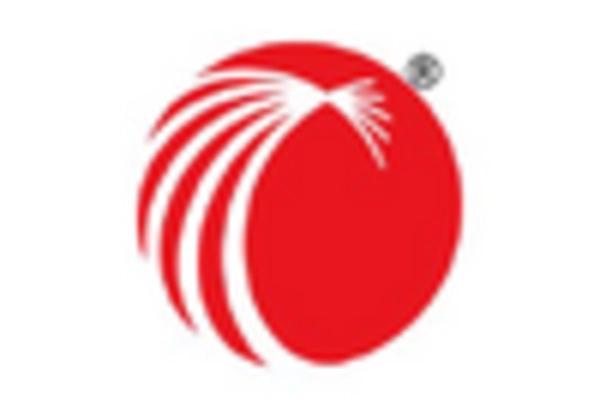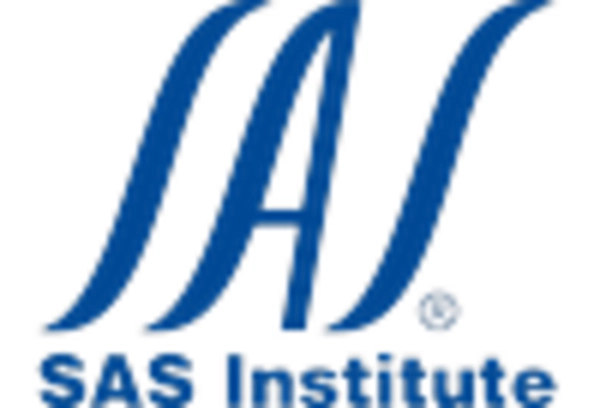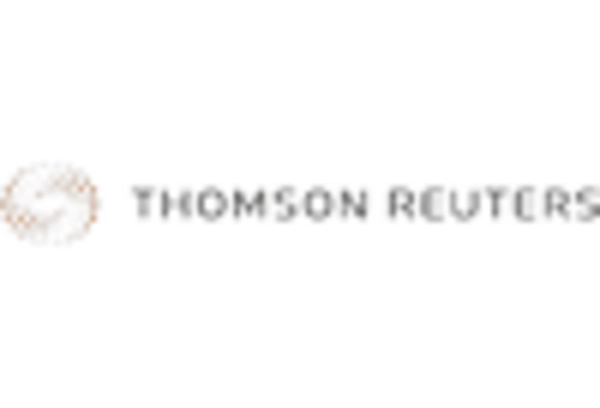Rising Regulatory Compliance Requirements
The regulatory technology market in South Korea is experiencing growth due to increasing regulatory compliance requirements across various sectors. As businesses face heightened scrutiny from regulatory bodies, the demand for solutions that streamline compliance processes is on the rise. In 2025, the South Korean government has introduced new regulations aimed at enhancing transparency and accountability in financial services, which has led to a projected market growth of 15% in compliance-related technologies. Companies are seeking innovative tools to manage their compliance obligations efficiently, thereby driving the adoption of regulatory technology solutions. This trend indicates a shift towards more proactive compliance management, where organizations leverage technology to mitigate risks and ensure adherence to evolving regulations.
Technological Advancements in Data Analytics
Technological advancements in data analytics are significantly influencing the regulatory technology market in South Korea. The ability to analyze vast amounts of data in real-time allows organizations to identify compliance risks and regulatory breaches more effectively. In 2025, the market for data analytics tools within the regulatory technology sector is expected to grow by 20%, as firms increasingly recognize the value of data-driven decision-making. Enhanced analytics capabilities enable businesses to not only comply with regulations but also to gain insights that can improve operational efficiency. This trend suggests that organizations are prioritizing investments in regulatory technology solutions that incorporate advanced analytics to stay ahead of regulatory changes and enhance their compliance frameworks.
Emergence of Collaborative Compliance Platforms
The emergence of collaborative compliance platforms is influencing the regulatory technology market in South Korea. These platforms facilitate communication and collaboration among various stakeholders involved in compliance processes, including regulators, businesses, and legal advisors. In 2025, the market for collaborative compliance solutions is expected to grow by 22%, as organizations seek to streamline their compliance efforts through enhanced cooperation. This trend indicates a move towards more integrated compliance ecosystems, where technology plays a pivotal role in fostering collaboration. By leveraging collaborative platforms, businesses can improve their compliance efficiency and ensure that all parties are aligned with regulatory requirements.
Growing Demand for Real-Time Monitoring Solutions
The demand for real-time monitoring solutions is becoming a key driver in the regulatory technology market in South Korea. Organizations are increasingly seeking tools that provide continuous oversight of compliance activities, enabling them to respond swiftly to potential regulatory breaches. In 2025, the market for real-time monitoring technologies is anticipated to expand by 18%, as businesses recognize the importance of proactive compliance management. This trend reflects a broader shift towards a culture of compliance, where organizations prioritize transparency and accountability. By investing in regulatory technology that offers real-time insights, companies can enhance their compliance posture and reduce the risk of regulatory penalties.
Increased Focus on Financial Technology Integration
The integration of financial technology (fintech) solutions is reshaping the regulatory technology market in South Korea. As fintech continues to evolve, regulatory technology solutions are increasingly being designed to accommodate the unique compliance challenges faced by fintech companies. In 2025, the fintech sector is projected to grow by 25%, which in turn drives demand for regulatory technology that can seamlessly integrate with fintech applications. This integration is crucial for ensuring that fintech firms can navigate complex regulatory landscapes while maintaining operational agility. The regulatory technology market is thus adapting to support the specific needs of fintech, indicating a trend towards more specialized compliance solutions that cater to this dynamic industry.


